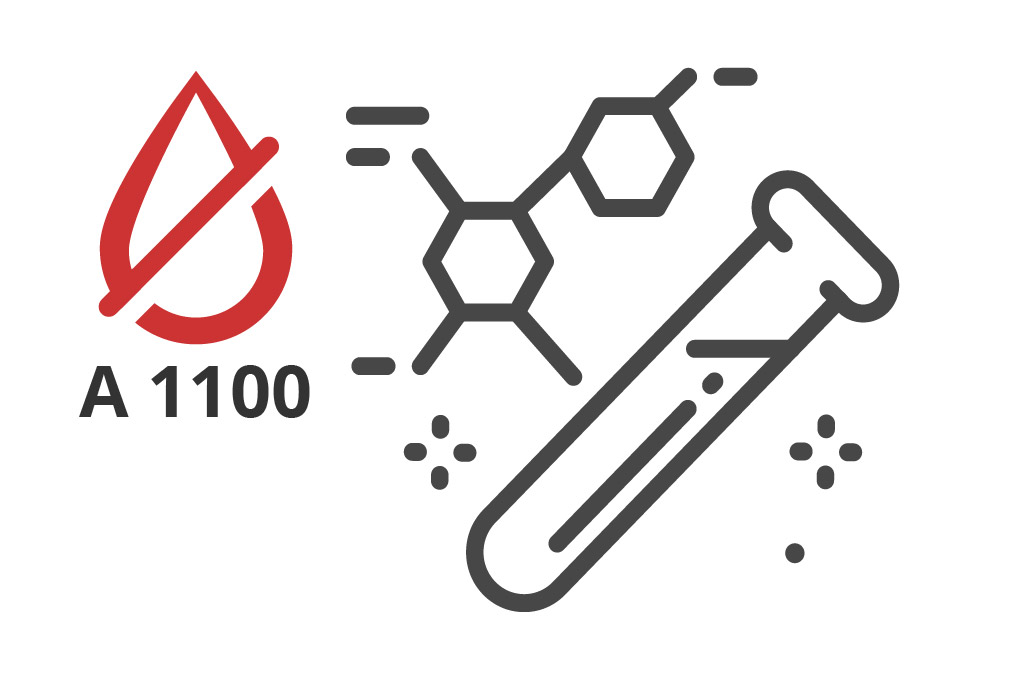A1100 | Anti bleed Additive
- 0.5%-1% wt
- Metal surfaces
- Excellent bleed control
Product Description
A-1100 is a proprietary non-halogenated additive designed to reduce resin bleed out on a variety of surfaces with minimal or no affect on the adhesion properties of the formulation. It shows excellent results when used in non-metal filled systems after reducing bleed. It is co-curable in free-radical polymerization. It also can enhance the rheological properties of various filled adhesives.
A-1100 is recommended for use as an additive to reduce resin bleed out specifically on metal surfaces and has more acid functionality per molecule then A-1050. The recommended addition of the A-1100 to a formulation is between 0.5% - 1% weight percent of resin. It shows superior bleed control in formulations that contain non-metal fillers such as silica.
Technical Specifications
| General Properties | |
| Appearance Appearance Appearance at room temperature. | Yellow liquid |
| Density (g) | 1.01 g/cm3 |
| Functionality | 2 Functional group/molecule |
| Molecular weight | 1226 (Estimated) g/mol |
| Thermal Properties | |
| Flash Point Flash Point The flashpoint of a solvent is the lowest possible temperature at which it can vaporize to form an ignitable vapor. Flashpoint is often confused with “autoignition temperature”, which is the temperature at which a solvent ignites without an ignition source. | 146 °C |
| Physical Properties | |
| Viscosity Viscosity Viscosity is a measurement of a fluid’s resistance to flow. Viscosity is commonly measured in centiPoise (cP). One cP is defined as the viscosity of water and all other viscosities are derived from this base. MPa is another common unit with a 1:1 conversion to cP. A product like honey would have a much higher viscosity -around 10,000 cPs- compared to water. As a result, honey would flow much slower out of a tipped glass than water would. The viscosity of a material can be decreased with an increase in temperature in order to better suit an application | 475 mPa.s |
Additional Information
Epoxy Resin Incompatibility
A1100 rely on acid functionality to bond in and prevent bleeding. Unfortunately thiol group react with epoxy resin instead of substrate reducing or even eliminating the resin bleed functionality.
Molecular Weight Estimation
We do not specifically measure the M.W. for this material and instead rely on the average M.W. of the starting material and the functionality (thiol group) that makes the product.



